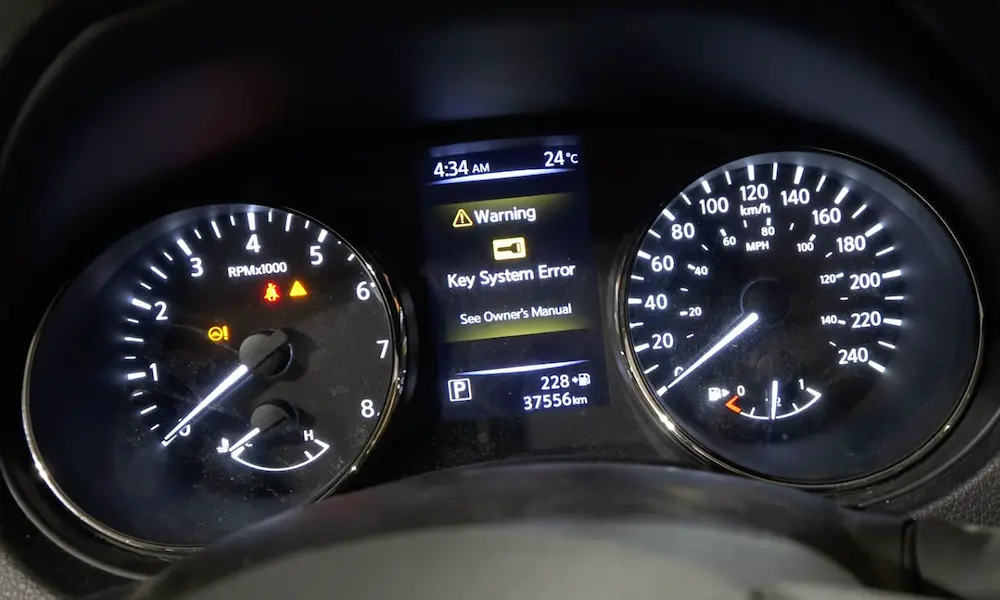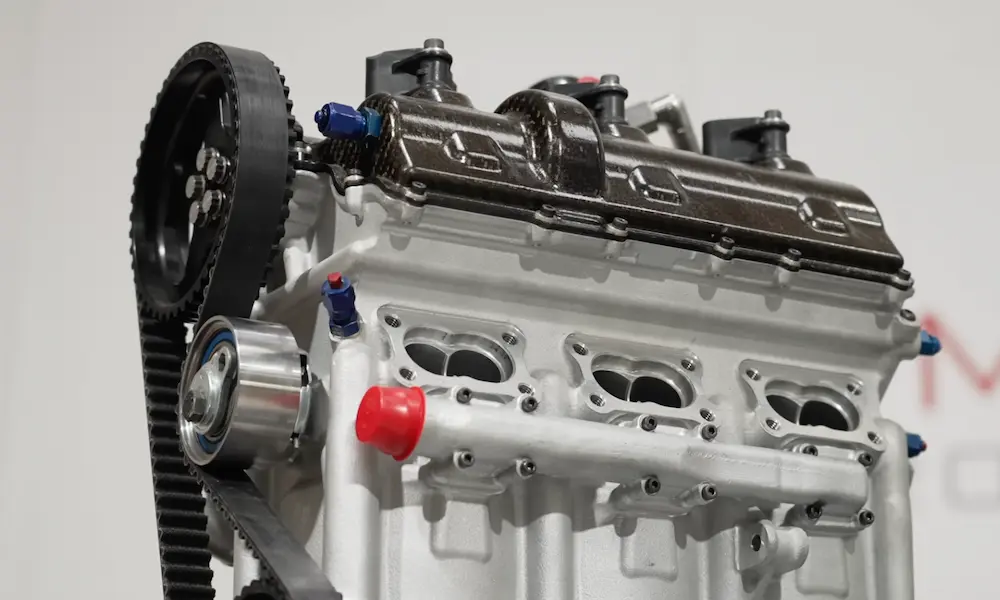Got a Nissan Sentra that’s acting up? You’re dealing with one of the most documented transmission issues in modern cars. From sudden juddering to complete CVT failures, these problems affect thousands of drivers. Here’s what you need to know to protect yourself and your wallet.
What Makes Nissan Sentra CVT Transmissions So Problematic?
Nissan’s CVT (Continuously Variable Transmission) design creates most of the trouble. Unlike regular transmissions with fixed gears, CVTs use a belt-and-pulley system that’s supposed to give you smooth acceleration. Sounds great in theory, right?
The reality is different. The CVT belt slips, overheats, and wears out way too early. Technical service bulletins show Nissan has known about these issues for years. They’ve tried software fixes, but many owners still end up needing complete transmission replacements.
The belt slippage creates that annoying “judder” – basically your car shakes when you try to accelerate. It’s not just uncomfortable; it’s a warning sign that your transmission is failing.
The Worst Nissan Sentra Years for Transmission Problems
Some model years are way worse than others. Here’s the breakdown:
2013-2017: The Disaster Years
These are the models you should avoid at all costs. The 2013 and 2014 Sentras alone have over 100 complaints filed with NHTSA. Common failures happen before 100,000 miles, which is unacceptable for any transmission.
2020-2024: Still Having Issues
Nissan claimed they fixed the problems with their updated Xtronic CVT. They didn’t. The 2024 models just had a major recall for driveshaft defects that can cause sudden power loss.
Here’s a quick reference table for the most problematic years:
| Model Years | Main Issues | Average Repair Cost | Recall Status |
|---|---|---|---|
| 2013-2017 | CVT juddering, belt slippage, complete failure | $3,300-$4,300 | Multiple TSBs issued |
| 2020-2024 | Delayed acceleration, driveshaft separation | $3,500+ | 2024 driveshaft recall |
Most Common Nissan Sentra Transmission Problems
CVT Juddering and Shaking
This is usually the first sign of trouble. Your car will shake or vibrate when you accelerate, especially from a stop. The problem gets worse over time as the CVT belt continues to slip.
Nissan’s tried to fix this with software updates to the Transmission Control Module. These updates look for diagnostic codes like P17F0 and P17F1. But here’s the thing – the software fixes rarely work long-term.
Overheating and Limp Mode
CVTs in Sentras can’t handle heat well. Drive uphill or at highway speeds for too long, and your transmission overheats. When this happens, your car goes into “limp mode” – you can barely accelerate and your top speed drops dramatically.
Some owners got external coolers installed, but that’s treating the symptom, not the cause. The CVT design itself can’t handle normal driving conditions.
Complete Transmission Failure
This is the nightmare scenario. Your transmission just stops working entirely. You’re looking at $3,300 to $4,300 for a replacement, and that’s if you’re lucky enough to find a shop that’ll work on CVTs.
Driveshaft Problems (2024 Models)
The newest problem affects 2024 Sentras. A manufacturing defect causes the left-front driveshaft to separate from the transmission. This leads to fluid leaks and sudden power loss – extremely dangerous at highway speeds.
Warning Signs Your Sentra’s Transmission Is Failing
Don’t wait for complete failure. Watch for these early warning signs:
Immediate Red Flags:
- Shaking or juddering during acceleration
- Delayed response when you press the gas
- Whining or grinding noises from the transmission
- Check engine light or CVT warning lights
- Car suddenly losing power while driving
Gradual Warning Signs:
- Slower acceleration than normal
- Engine revving without corresponding acceleration
- Unusual vibrations at certain speeds
- Transmission fluid leaks under your car
If you notice any of these issues, get your car checked immediately. Catching problems early might save you thousands in repair costs.
Legal Actions and Recalls
Class-Action Lawsuits
Nissan faces multiple lawsuits over CVT reliability. Owners claim Nissan knew about the problems but hid them from consumers. The lawsuits argue that Nissan should cover repair costs and buy back defective vehicles.
NHTSA Investigations
The National Highway Traffic Safety Administration continues investigating CVT belt slip defects in 2012-2016 Sentras. These investigations often lead to recalls or extended warranties.
Lemon Law Claims
Many owners have successfully used lemon laws to get buybacks or replacements. If your Sentra has been in the shop multiple times for the same transmission problem, you might qualify for a lemon law claim.
What Nissan Has Done (And Why It’s Not Enough)
Technical Service Bulletins
Nissan has issued over a dozen TSBs trying to fix CVT problems. Most involve reprogramming the Transmission Control Module or replacing the entire transmission under warranty.
The problem? These fixes are reactive, not preventive. Nissan keeps trying to patch a fundamentally flawed design.
Warranty Extensions
In 2023, Nissan extended CVT warranties for 2017-2019 Sentras. This covers internal components, gaskets, and valve bodies. But earlier models – the ones with the worst problems – got left out.
Recent Recalls
The May 2024 recall affected 9,645 Sentras with driveshaft defects. Dealers inspect and replace faulty components for free, but the recall shows Nissan still has quality control issues.
The Real Cost of Nissan Sentra Transmission Problems
Financial Impact
CVT replacements cost between $3,300 and $4,300. That’s more than many Sentras are worth, especially older models. Some owners report paying for multiple repairs:
- 2014 Sentra owner: $3,600 repair at 85,000 miles
- 2015 Sentra owner: $3,500 replacement at 61,000 miles
- Multiple owners report second failures within 50,000 miles of the first repair
Safety Risks
Beyond the money, these failures create serious safety hazards. NHTSA complaints include:
- Sudden power loss at highway speeds
- Cars rolling away while in Park
- Complete stalling in traffic
One driver reported: “The engine stalled without warning at 70 mph, creating a near-miss collision.”
How to Protect Yourself as a Sentra Owner
For Current Owners
Get Regular Inspections: Have your CVT checked every 30,000 miles, even if it seems fine. Early detection can save thousands.
Monitor Fluid Levels: CVT fluid should be reddish and smell sweet. Dark, burnt-smelling fluid means trouble.
Keep Records: Document every repair, software update, and complaint. You’ll need this for warranty claims or legal action.
Know Your Rights: If you’ve had multiple repairs for the same problem, research lemon law protections in your state.
For Potential Buyers
Avoid Problem Years: Stay away from 2013-2017 models entirely. Even if the price seems great, you’ll pay more in repairs.
Get Pre-Purchase Inspections: Any used Sentra should get a thorough CVT inspection before you buy.
Consider Alternatives: Honda Civic, Toyota Corolla, and Hyundai Elantra all offer better reliability in the compact sedan segment.
Current Reliability Ratings vs Reality
Here’s something confusing: RepairPal gives the Sentra a 4.0/5 reliability rating with average annual repair costs of $491. This seems to contradict all the transmission problems.
The disconnect happens because RepairPal averages all repairs, not just major ones. Sure, Sentra engines and other components are reliable. But when the transmission fails, you’re looking at repair costs that exceed the car’s value.
This rating system doesn’t capture the reality of catastrophic CVT failures that leave owners stranded with worthless cars.
What’s Next for Nissan Sentra Transmissions?
Ongoing Investigations
NHTSA continues investigating CVT problems across multiple Nissan models. These investigations could lead to broader recalls or mandatory buyback programs.
Future Design Changes
Nissan needs to move away from CVT technology in affordable cars. Their larger vehicles use chain-driven CVTs that are more reliable, but these cost more to manufacture.
Until Nissan makes fundamental design changes, expect transmission problems to continue affecting new models.
The Bottom Line on Nissan Sentra Transmission Problems
Nissan Sentra transmission problems aren’t random bad luck – they’re the result of a decade-long failure to fix known design flaws. The CVT technology simply can’t handle the demands of daily driving in an affordable car.
If you own a Sentra, stay vigilant for warning signs and know your legal rights. If you’re shopping for a compact sedan, consider literally any other option. The money you save upfront on a Sentra will get eaten up by transmission repairs.
The evidence is clear: Nissan prioritized fuel economy marketing over actual reliability. Until they admit the fundamental problems with their CVT design and make real changes, these transmission failures will continue plaguing Sentra owners.
Your car should get you where you need to go reliably. The Nissan Sentra’s transmission problems make that basic expectation a gamble you shouldn’t have to take.












